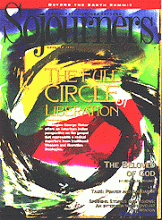A quiet revolution has transformed the U.S. courts. By the end of 1992, the last two Republican presidents will have appointed more than 60 percent of the federal bench. Most Reagan-Bush appointees--many of them former corporate and government defense lawyers--are selected more for political obedience than legal skills. Clearly, with Congress controlled by Democrats, the Republicans engineered a judicial overhaul in lieu of a legislative one.
As a result, public interest litigation is on death row. Hostile legal decisions that threaten to keep the disenfranchised out of the courts have made ruins of civil rights landmarks and frightened many away entirely from challenging government and corporate abuse.
To establish this culture of fear, conservative federal judges have a procedural weapon to strike down almost any case they don't like--"Rule 11." Passed by Congress in 1938 to deter frivolous lawsuits that have no basis in law or fact, Rule 11 was amended in 1983 to encourage judges to impose huge financial sanctions on lawyers, law firms, and clients who ostensibly violate the rule.
The amended Rule 11 gives judges much greater discretion to use, and abuse, it. Judges use vague criteria to determine whether lawyers did "sufficient" research before filing a case, had "proper" motives for suing, and based their case on law and fact. In other words, lawyers who need subpoena power to develop a case, are motivated by outrage and moral courage, or challenge legal precedent are plum targets of Rule 11.
Today, Rule 11 is used as a political weapon not unlike the McCarthy witch hunts of the 1950s. Well-known public-interest organizations have already felt the sting--some of them to the death.
Read the Full Article

